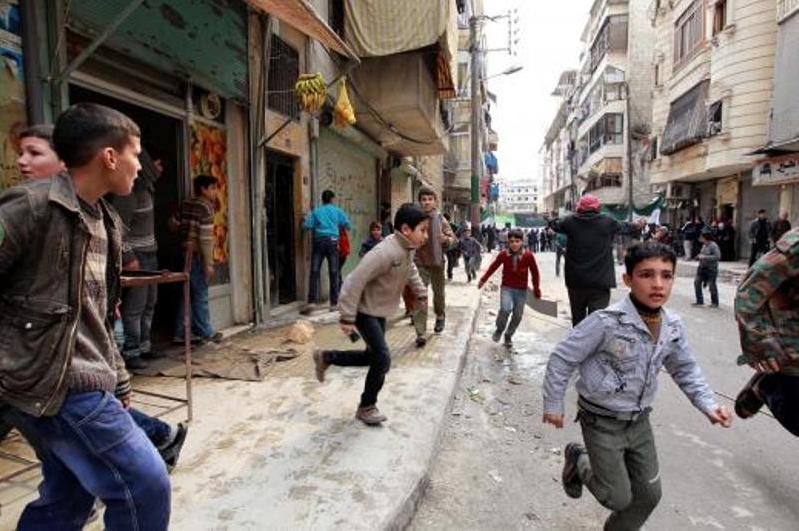
Conservative author and commentator Charles Krauthammer said on Fox News Thursday the destruction in Aleppo, Syria, will be an often remembered part of U.S. President Barack Obama's legacy, rather than his foreign policy for the Iran deal or the death of Usama bin Laden. The chaos in Aleppo is the result of a years-long civil war between Syrian dictator Bashar Assad and rebel forces trying to overtake the government. Obama, during his final press conference on Friday, said he feels "responsible" for some of the suffering in Syria, but he defended his decision to avoid significant military action there. He said while military options short of invasion were tempting, it was "impossible to do this on the cheap."
Aleppo fell to Assad's government this week, and civilians were evacuated or killed, which led to desperate pleas from battered residents and reports of atrocities against them.
"Obama imagines that the Obama [Iran] deal is his legacy. It is not. Aleppo is his legacy," Krauthammer said on Fox News Thursday. "History will remember this as kind of the symbolism of the whole policy of retreat and the inevitable outcome."
Obama pinned the bulk of the blame for Aleppo on Russia, as well as Iran, for propping up Syrian President Assad. "This blood and these atrocities are on their hands," he said.
Krauthammer said the Syrian civil war would have happened regardless of what the U.S. did. But, he said he believes how the U.S. handled the situation left much to be desired.
"The civil war was in a sense in equilibrium a year and a half ago when the Russians decided that their side, Assad, was losing. The rebels were actually on the advance in Aleppo and elsewhere. He [Putin] stepped in to rescue Assad, then he saw that there was no response on the part of the West, no penalties whatsoever, even economic, coming from the United States and he decided to drive the advantage," Krauthammer said.
U.S. ambassador to the United Nations' Samantha Power this week pleaded with the Iranians, Russians and Syrian dictator to stop the killing, reports the Boston Globe. "Are you truly incapable of shame? Is there literally nothing that can shame you? Is there no act of barbarism against civilians, no execution of a child that gets under your skin?" Power said Tuesday.
Krauthammer's response to Power on Thursday was: "The answer is obvious they have none."
"The only thing that could have stopped this, ultimately, would have been some kind of deterrent from the United States, warning from the United States. We didn't, and now we have what we have," Krauthammer said.
Previously, hundreds of thousands chose to stay in Aleppo what they proudly called "Free Aleppo," eschewing safe routes when they still existed and vowing to preserve their alternative to Assad even if it meant death.
Mike Dorney of Bloomberg news also asked Obama about Syria during Friday's conference, to which Obama said: "There are places around the world where horrible things are happening and because of my office, because I'm president of the United States, I feel responsible. I ask myself every single day, is there something I could do that would save lives and make a difference and spare some child who doesn't deserve to suffer.
With respect to Syria, what I have consistently done is taken the best course that I can to try to end the civil war while having also to take into account the long-term national security interests of the United States. And throughout this process, based on days and weeks of meetings, where we went through every option in painful detail with maps and we had our military and we had our aid agencies and we had our diplomatic teams, and sometimes, we'd bring in outsiders who were critics of ours. Whenever we went through it, the challenge was that short of putting large numbers of U.S. troops on the ground uninvited, without any international law mandate, without sufficient support from Congress, at a time when we still had troops in Afghanistan and we still have troops in Iraq and we had just one through over a decade of war and spent trillions of dollars and when the opposition on the ground was not cohesive enough to necessarily govern a country and you had military superpower in Russia prepared to do whatever it took to keep its involved and you had a regional military power in Iran that saw their own vital strategic interests at stake and were willing to maintain that territory in the absence of consent from the Syrian government and now the Russians or the Iranians."
Obama said the biggest priority, given the current situation in Aleppo, is to continue to put the world's eyes on the innocent people trapped there, and to put pressure on the situation to get them out.






